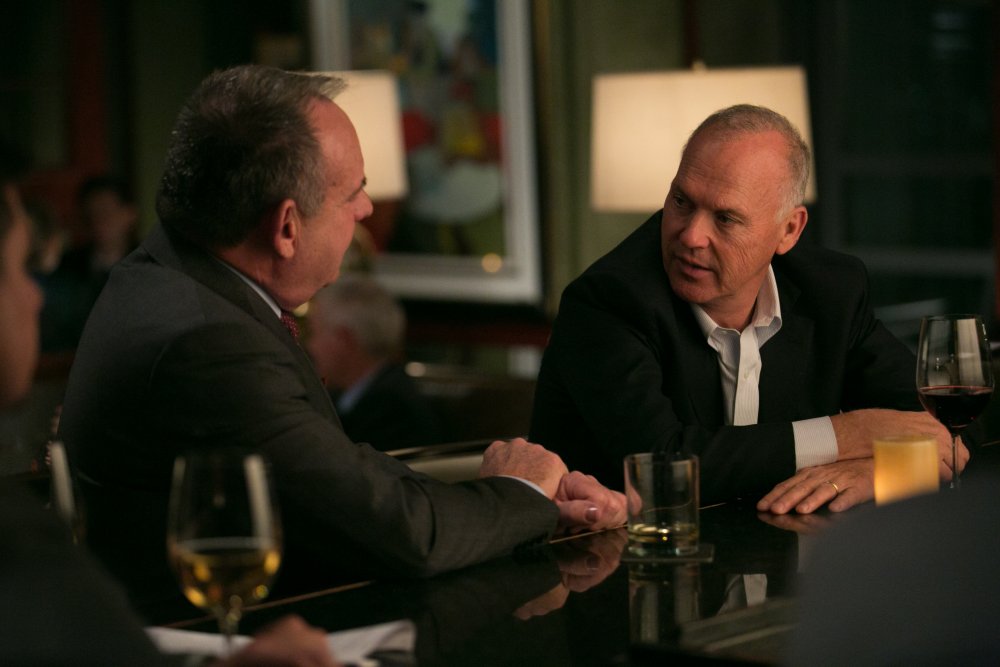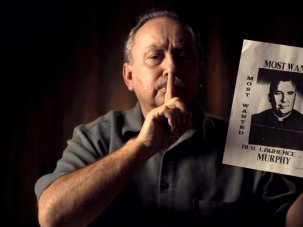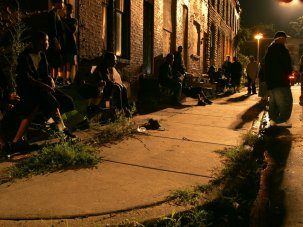“Just be sure you’re right.” That was the grave warning handed out by Washington Post executive editor Ben Bradlee to reporters Carl Bernstein and Bob Woodward in Alan J. Pakula’s All the President’s Men (1976), just prior to the famed duo’s revelations of a rotten administration.
USA 2015
Certificate 15 128m 33s
Director Tom McCarthy
Cast
Michael Rezendes, ‘Mike’ Mark Ruffalo
Walter Robinson, ‘Robby’ Michael Keaton
Sacha Pfeiffer Rachel McAdams
Martin Baron, ‘Marty’ Liev Schreiber
Ben Bradlee Jr John Slattery
Matt Carroll Brian d’Arcy James
Mitchell Garabedian Stanley Tucci
Eric Macleish Billy Crudup
Pete Conley Paul Guilfoyle
Jim Sullivan Jamey Sheridan
Cardinal Bernard Law Len Cariou
voice of Richard Sipe Richard Jenkins [uncredited]
Dolby Digital
In Colour
[1.85:1]
UK release date 29 January 2016
Distributor E1 Films
► Trailer
In Spotlight, Tom McCarthy’s equally engrossing true-life chronicle, it’s Ben Bradlee Jr (John Slattery), special projects editor at the Boston Globe, who sounds the requisite weary note of caution. As well he might: his team is investigating not an erring presidency but an institution of comparable might and cloaked impenetrability – the Roman Catholic Church. Pakula’s seminal Watergate drama remains a high benchmark for deliberate, conspiracy-shrouded newsroom manoeuvres – David Fincher’s Zodiac (2007), for one – and Spotlight can’t help but be measured against it. Happily, McCarthy’s film rises to the occasion with understated force and intelligence: his is an expert, finely tuned procedural that deserves to be mentioned in the same breath as its esteemed ancestor.
Titled after the Globe’s Pulitzer-winning special investigations unit, Spotlight handles a difficult subject – the covering up by Boston’s hugely powerful archdiocese of systemic clerical abuse – in a manner that’s candid yet devoid of sensationalism. Spanning the course of an incendiary few months at the Globe in 2001 and early 2002, McCarthy and Josh Singer’s intricate script is dense with accumulative detail yet rarely feels overstuffed.
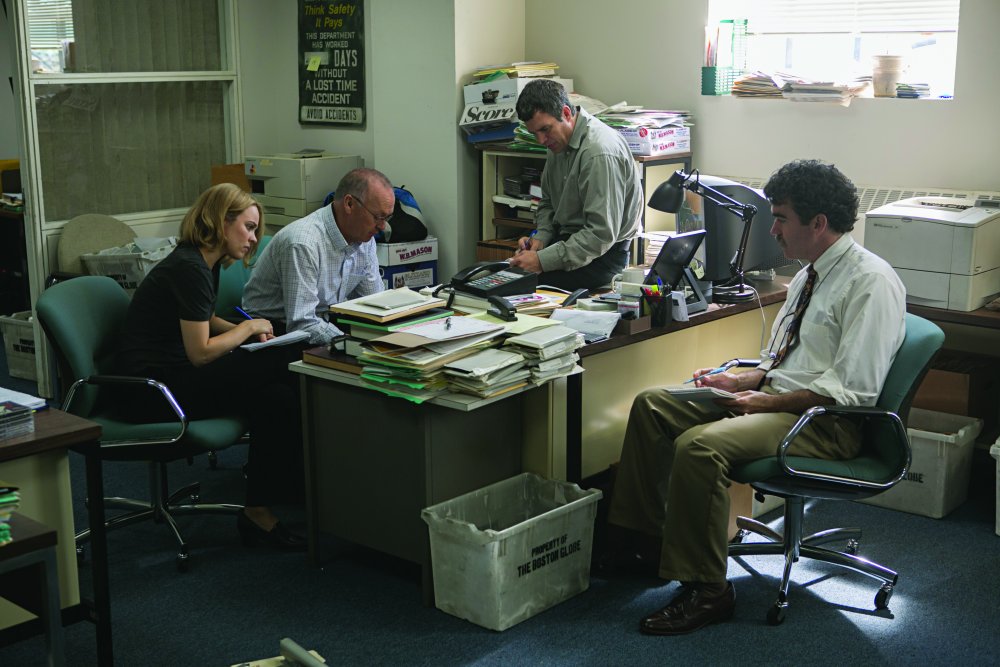
It begins with the arrival of undaunted new editor Martin Baron (Liev Schreiber), who, keen to champion the Globe’s perhaps unsung investigative prowess, sets the Spotlight team to work on the case of John Geoghan, a retired priest then the subject of multiple civil lawsuits for historical sexual abuse. Tucked away in a cramped basement office below the bustling Globe newsroom, the quartet of journalists – veteran Walter ‘Robby’ Robinson (Michael Keaton), wired lead writer Michael Rezendes (Mark Ruffalo) and reporters Sacha Pfeiffer (Rachel McAdams) and Matt Carroll (Brian D’Arcy James) – quickly find the scope of their investigation widening to encompass not just Geoghan but numerous other priests in the Boston area.
Victims’ testimonies lead them to suspect that Cardinal Bernard Law, Boston’s formidable archbishop, covered up the abuse by reassigning Geoghan and others to new, unsuspecting parishes. Needing hard evidence, the Globe petitions the court to release sealed church records that may prove Law’s complicity. When Slattery’s Bradlee Jr gasps, “We’re going after Law?” the double meaning of the surname is plainly felt.

McCarthy is no stranger to the lot of the crusading journalist, having played ethically conflicted hack Scott Templeton in the final season of HBO’s The Wire. The latter’s focus on the slow, pedantic, hard-won accretion of evidence is recalled here, as are the frequent question marks over what’s true and what’s fabricated. In a city where some 40 per cent of the populace identifies as Catholic, the stakes are especially high – anything less than “bulletproof” (the real Pfeiffer’s word) veracity could result in a major backlash for the paper. The 9/11 attacks and the resulting national mood only compound this urgency.
Progress is gradual, with many brick walls hit as victims are consulted and lawyers badgered. One of these, renowned civil litigator Mitchell Garabedian (Stanley Tucci), proves to be a key ally. Others, such as Billy Crudup’s supercilious church-appointed attorney, cheerfully parry Spotlight’s enquiries into the many private payoffs sanctioned by the archdiocese.
There are shades of Deep Throat, Watergate’s shadowy informant, in the introduction of ex-priest and psychotherapist Richard Sipe (played by an unbilled Richard Jenkins as a voice on the phone), whose research paints clerical abuse as a “genuine psychiatric phenomenon”. Meanwhile it’s Garabedian who figures prominently in the film’s momentary flirtation with the trappings of the conspiracy thriller, providing a vintage park-bench tipoff that triggers a race against time to secure vital documents.
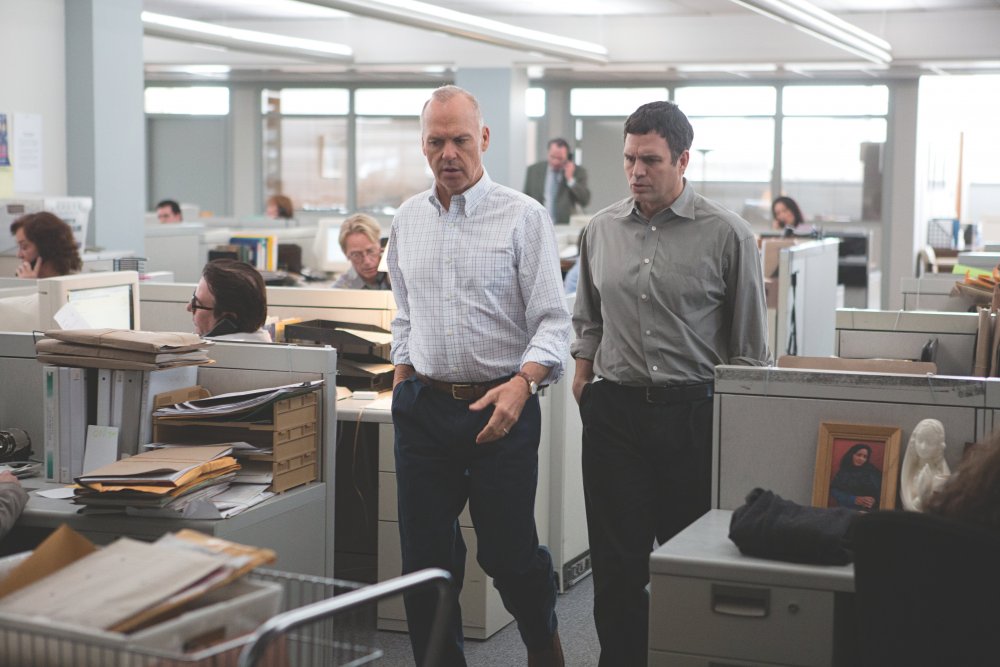
While McCarthy’s crisp, unfussy treatment allows few visual flourishes, it’s an approach – bolstered by cinematographer Masanobu Takayanagi’s precise framing and fluent tracking shots through the Globe’s boxy offices – that pays dividends with the intricate narrative. There’s the odd symbolic gesture: a montage of Spotlight’s door-to-door interviews has the camera repeatedly pull back to reveal churches dwarfing the characters and apartments below. While not subtle, it’s a blunt commentary on the extent to which the church is embedded in the everyday fabric of Bostonian life. However, there’s little in the way of anticlerical liberal righteousness, rather a deep sadness felt by everybody – including the mostly Catholic Spotlight journalists – at the dizzying magnitude of the scandal.
The uniformly strong ensemble cast largely avoids any grandstanding moments, and manufactured drama is swerved, while Howard Shore’s sober score is applied with restraint. Bradlee Sr’s exhortation was one ultimately heeded by the real Spotlight unit, the Globe forgoing early publication until the facts were unassailable. Rigorous and patient to the last, McCarthy’s film is a becoming tribute to their due diligence.
In the February 2016 issue of Sight & Sound
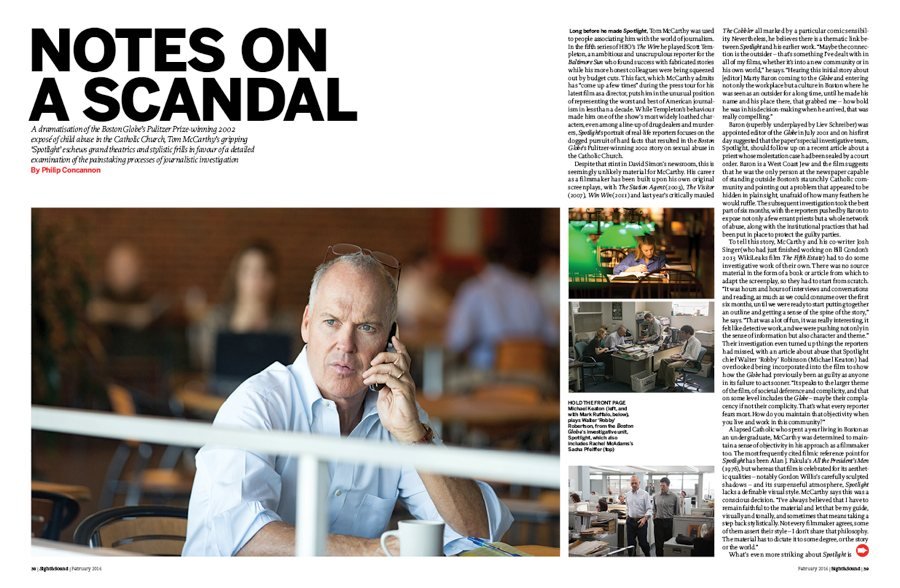
Notes on a scandal
A dramatisation of the Boston Globe’s Pulitzer Prize-winning 2002 exposé of child abuse in the Catholic Church, Tom McCarthy’s gripping Spotlight eschews grand theatrics and stylistic frills in favour of a detailed examination of the painstaking processes of journalistic investigation. By Philip Concannon.
→ Buy a print copy now
→ Access the digital edition
→
Also recommended this week
Innocence of Memories Orhan Pamuk’s Museum & Istanbul
Director Grant Gee | United Kingdom/Ireland/Italy/France 2015 | On limited release
inbetweenartfilm.com/pages/productions–archive/innocence-of-memories-orhan-pamuks-museum-and-istanbul | ► Trailer
A “multifaceted engagement” with Nobel laureate Orhan Pamuk’s 2008 novel The Museum of Innocence, directed by The Rings of Saturn’s Grant Gee. Reviewed by Michael Brooke in our February 2016 issue:
“Grant Gee is rapidly becoming the most reliably intriguing British cine-essayist since Patrick Keiller… This multilayered treatment, blithely blending fact and fiction, proves singularly appropriate to its highly unusual source.”
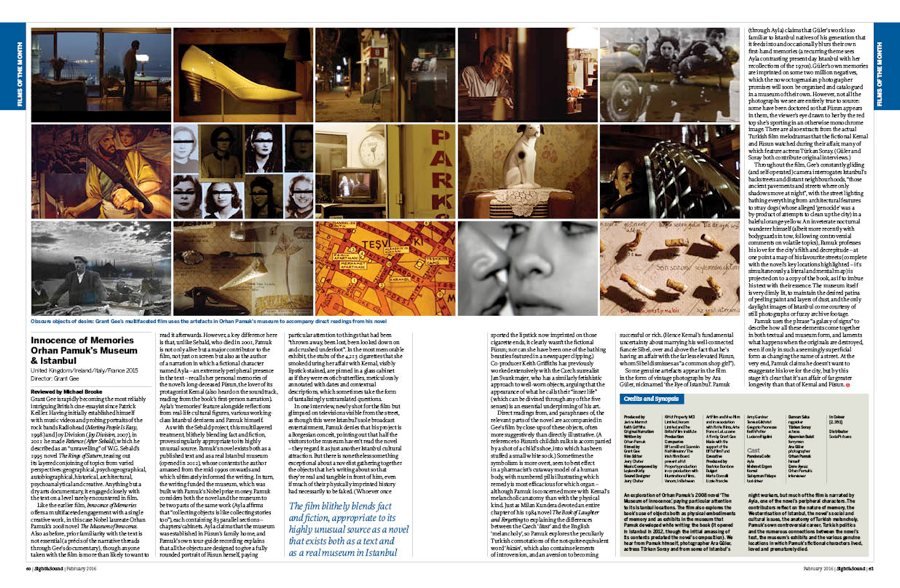
We Come as Friends
Director Hubert Sauper | France/Austria 2014 | At Picturehouse Central, London
wecomeasfriends.com | ► Trailer
An award-winning documentary j’accuse aimed at the legion of alien interlopers advancing on the oil-rich and turbulent new nation of Southern Sudan under the flags of political or spiritual development. Reviewed by Vadim Rizov in our March 2016 issue:
Sauper doesn’t create hierarchies between the Chinese employees of oil refineries who don’t talk to ‘the natives’ but are sure everything is OK, western ‘entrepreneurs’ who piously proclaim “it’s about developing the country” before whooping it up at the “big bucks” to be made, or Texan missionaries who want the natives to just wear some clothes. No false distinction is made between colonialism and neocolonialism: the film is unambiguously against all outsiders.
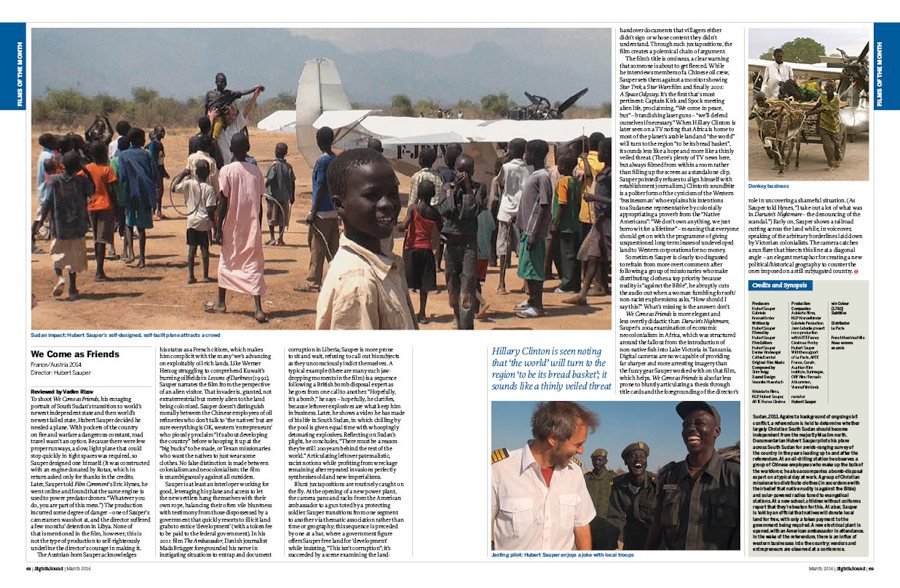
-
Sight & Sound: the February 2016 issue
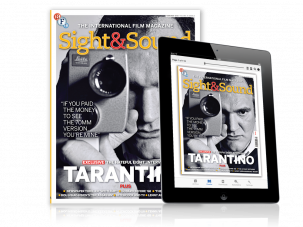
Tarantino on Tarantino, Kent Jones on the best of Jean-Luc Godard, Hou Hsiao-Hsien’s ravishing The Assassin, Tom McCarthy’s Spotlight, Lenny...
-
The Digital Edition and Archive quick link
Log in here to your digital edition and archive subscription, take a look at the packages on offer and buy a subscription.




